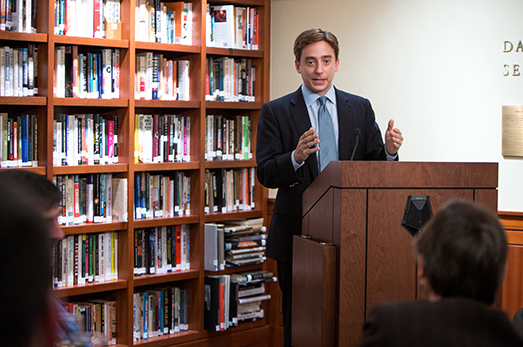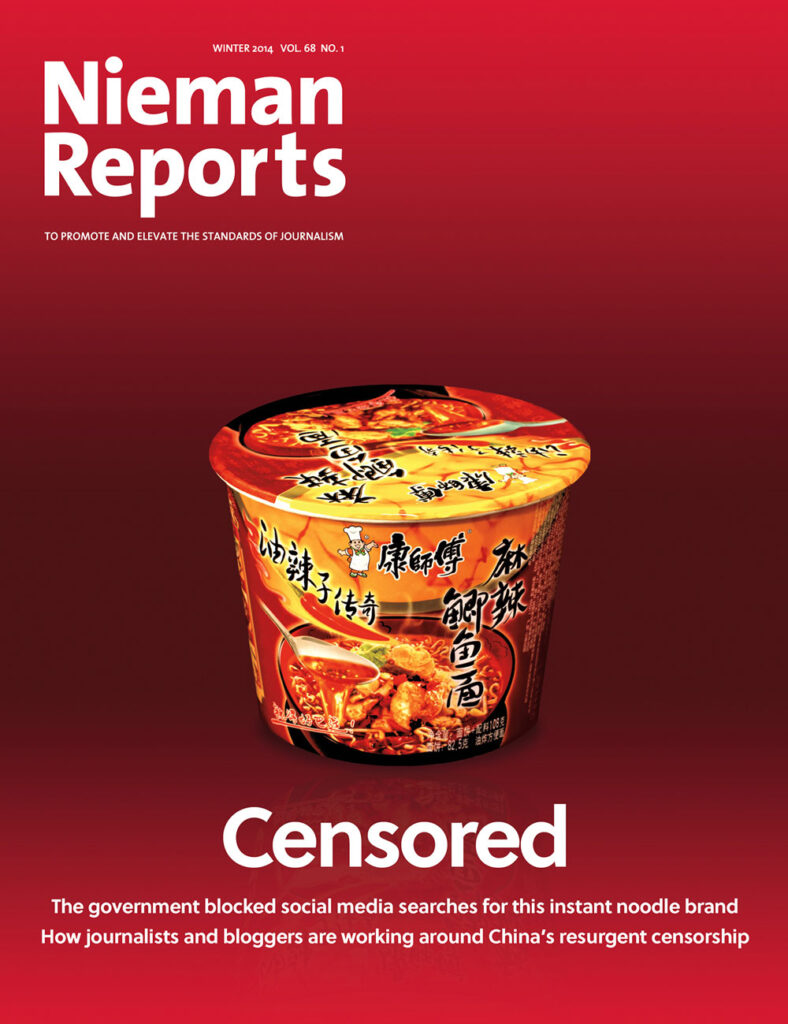
Evan Osnos, who covered China for eight years with the Chicago Tribune and The New Yorker, spoke about the difficulty of covering modern China in the 2013 Joe Alex Morris Jr. Memorial Lecture. Photo by Lisa Abitbol
In the weeks before Evan Osnos delivered the 2013 Joe Alex Morris Jr. Memorial Lecture at the Nieman Foundation, the problems facing journalists in China were prominent in the news: veteran correspondent Paul Mooney, who has written many hard-hitting stories about human rights abuses, had his resident journalist visa renewal request denied, and a recent New York Times report detailed charges that Bloomberg News withheld a story out of concern that it might upset Chinese leaders. “In various ways, these headlines say that this is an extraordinarily complicated time to be writing about China, both for Chinese journalists and, I think, for those of us around the world who are trying to describe it with rigor, and with fairness," Osnos said.
For eight years, Osnos was one of those reporters, serving as the Beijing bureau chief for the Chicago Tribune from 2005 to 2008 and then as the China correspondent for The New Yorker until this fall, when he relocated to Washington, DC. In his time there, he saw extraordinary growth in almost every sector of the country, and with it came new demands—often made on the now-ubiquitous microblogging platforms—for rights and freedoms. Chinese and foreign journalists have become emboldened, he said, digging deeper into the personal finances of the country’s leaders in a way that had never before been possible. Even when this work drew reprisals from the government, reporters accept the difficulties in exchange for covering the momentous story that is modern China.
“The reporters in China love the country more than the reporters in any other country that I’ve ever worked,” Osnos said. “It’s a self-selecting group, which is different than in a lot of other places. In Iraq, for instance, where I worked, there weren’t very many people in love with Iraq. … But in China, as a lot of people in this room know, there is that thing that draws you there, and it is beguiling and it is charming, and it keeps you there.”
Video Excerpts
The Challenges Facing Paul Mooney and Bloomberg
The New Forensic Reporting in China
The Cycle of Aspiration and Demand
Human Rights Stories and "Gee Whiz, China!" Stories
Complete Video
Background on Joe Alex Morris Jr.
Introduction of Evan Osnos
The 2013 Joe Alex Morris Jr. Memorial Lecture
Question & Answer Session



